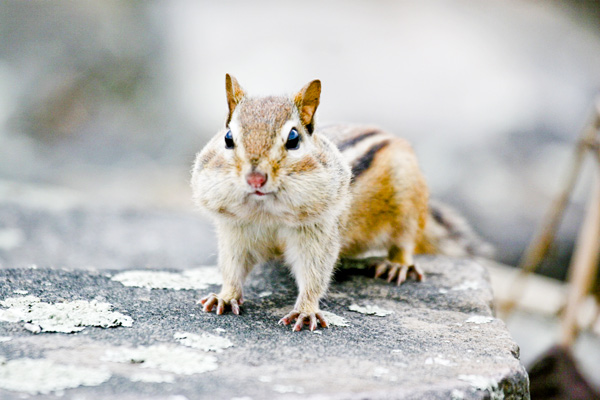Sun, size, critters can ruin a spring show Why bulbs fail


Chipmunks may be cute, but they’re persistent plant pests with a yen for flower bulbs, particularly tulips.
By Hugh Earnhart
OSU Extension master gardener volunteer
As you plan to plant your bulbs this fall, pay attention to the soil conditions, the site and other plants in the area. Planting correctly will make all the difference when it comes to success with bulbs in your landscape.
There are several reasons why a bulb fails to produce the expected flower. Here are the major ones I see most commonly in our area:
Poor drainage: Most bulbs cannot tolerate roots in too much water. The soil should drain well. In the Northern Climate Zone of Ohio, large amounts of snow melt can result in bulb decay. Rot is the most common reason for bulb failure.
Not enough sunlight: With few exceptions, all bulbs produce best when the foliage is allowed to get six to eight hours of daily sunlight. Deprived of sunlight, bulb mass diminishes. Without this stored energy, a bulb cannot produce a flower.
Rodents: Mice, chipmunks, voles and squirrels can disseminate a garden over a winter. A good gardener is always vigilant against rodent infestation. A good start in reducing rodent infestations is to clean up all leaves in the fall and reduce the number of ground covers in the landscape. These are both good protective coverings for rodent tunnels during the winter months.
Heat: Bulbs should never be stored in an environment where they may overheat. They should have ventilation around them until planting. If you buy a package now, but won’t be able to plant for a few days or a week – store them in the garage where they will be cool, but won’t freeze.
Wrong zone: When buying bulbs, be sure they are suited for your area. Bulbs listed as zone 3, 4 or 5 will do best in our area. Rainfall and soil types are not factors.
Small bulb size: Most bulbs on the open market have reached a critical size to produce a flower. But some wild bulbs, usually grown from seed, may need a season to attain an adequate flowering condition. Have a little patience.
If your bulbs do fail, try to determine the reason. Dig in the soil and look for signs of rodents or rotting. For more information on choosing and planting bulbs, visit http://go.osu.edu/bulbplant.
 43
43
